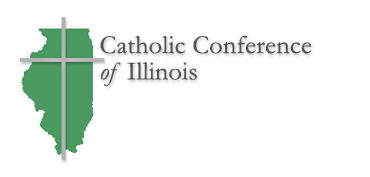Euthanasia/Assisted Suicide FAQ

Below are Frequently Asked Questions about Euthanasia/Assisted Suicide.
Does this mean that I am left to suffer endlessly?
Not at all. No one is obligated to take on treatments which will only extend life but do not offer hope of recovery; i.e., it is not necessary to live as long as one possibly can by whatever means necessary. There is great moral difference between acknowledging the reality of approaching death and intending to hasten it. One may refuse treatments which are deemed to be “disproportionate” in that they do not offer plausible hope for recovery, or more burdensome than beneficial to the patient. One may receive medications to deal with pain, even if they have a harmful effect or may hasten death, so long as this is not the intention of the patient nor the caregivers.
Why does the Church care?
The Church has accompanied believers in Christ through many eras and cultures. She offers more to care for the sick and needy than any other institution. She is a witness to those aspects of culture which respect the value of life and those which cheapen it. Actions which intentionally shorten life, even in the midst of suffering, cheapen human dignity and lead to a culture where some life is treated as having more value than others. When euthanasia is accepted and practiced, it casts a shadow over the lives of those who endure handicaps, are elderly or infirm. When public policy endorses the intentional ending of life when its end is near, it creates the expectation that life should not include suffering. The false idea can easily lead to the reduction or withholding of care for those who depend upon financial aid and whose lives no longer seem “useful” from an economic standpoint. There is evidence that economic considerations have played a role in the decision-making process that governs euthanasia and physician-assisted suicide.
What does the Church teach on this matter?
The Church has consistently taught that our life is a gift of God and its dignity is to be respected from the moment of our conception to our natural death. In each person’s life, the mystery of health and sickness, joy and suffering co-exist. While the practice of medicine which seeks to heal and alleviate suffering is a great vocation and work of mercy, the alleviation of suffering may never be confused with the elimination of the suffering person. Truly wholistic care for a patient and loved one should include the emotional and spiritual care to adequately address their pain and to accompany them through the last chapter of life, through death into eternal life.
Isn’t Euthanasia/Assisted Suicide presented as being compassionate?
Though some advocate allowing for assisted suicide as a more compassionate approach to the struggle of facing death, the word “compassionate” is literally translated as – “to suffer with.” Assisted suicide is the exact opposite of “suffering with;” it is the removal of the suffering person from our midst. Often, a terminally ill patient faces the great suffering of being alone or the guilt of feeling burdensome to loved ones. This person’s dignity as a child of God and fellow member of the human family should be affirmed, and we should be willing to truly be compassionate, willing to suffer with and support one another in these most difficult moments. Very often, when a suffering person’s pain can be managed and when their spiritual and emotional struggles are acknowledged, their fear of death and desire to hasten their death subsidies.
What can I do to ensure I am cared for according to my intentions?
Having a designated family member or proxy for making decisions of a medical nature should you be indisposed is a helpful way to assure that you receive the treatments and care you need, but also that your life need not be unnecessarily extended. Catholic hospitals and institutions adhere to the “Ethical and Religious Directives” authored by the United States Conference of Catholic Bishops. These clarify that ordinary means of care and treatment are expected, (such as nutrition and hydration as long as they can be accepted), but means which are unduly burdensome or futile need not be taken on, and that under no circumstances is your death to be intentionally hastened. Providing this link to your proxy or including it with your living will can and will help clarify your intentions.
To read A Message on Assisted Suicide from the Catholic Bishops of Illinois, CLICK HERE.
Tags: #assistedsuicide, #catholicconference, #catholicconferenceofillinois, #cci, #euthanasia, #prolife, #respectlife, #SB3499, #suicide


Comments are closed here.